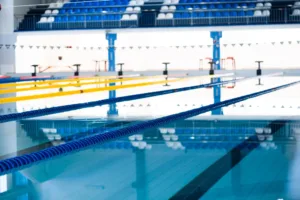Swimming pool water treatment is the process of maintaining and assuring the safety, cleanliness, and quality of water in swimming pools, whether private, commercial, or public. Proper pool water treatment is critical for ensuring a safe and enjoyable swimming experience while preventing illness transmission.
Effective swimming pool water treatment keeps the water clear, safe, and enticing to swimmers. It also increases the life of pool equipment and structures, which reduces long-term maintenance expenditures. Regular and consistent maintenance is critical for ensuring a safe and comfortable swimming experience for all pool users.

Swimming pool metering pumps are critical components of pool maintenance systems, helping to maintain the precision and efficiency needed to keep pool water clean, safe, and inviting. These specialist pumps are designed for precise dosing and distribution of chemicals and additives, ensuring that pool water is balanced and free of pollutants. Their function is critical in maintaining the integrity of pool equipment and structures, as well as, most significantly, the health and happiness of pool users. These pumps promote precision, efficiency, and safety, resulting in a pleasant and sanitary swimming experience.
Benefits of using swimming pool pumps
- Precise and reliable chemical dosing: Metering pumps can be programmed to dispense chemicals into the pool water in precise amounts, which helps to ensure that the water is properly treated without using too much or too little chemicals.
- Reduced maintenance: Metering pumps can automate the process of adding chemicals to the pool water, which can save time and effort for pool owners and operators.
- Improved water quality: Metering pumps help to ensure that the pool water is properly treated and free of harmful bacteria and other contaminants. This can help to prevent swimmers from getting sick and can also improve the overall quality of the swimming pool experience.
- Chemical Feed Rate Adjustments: Metering pumps can be easily adjusted to accommodate changes in pool usage, water temperature, or other factors that affect chemical requirements.

